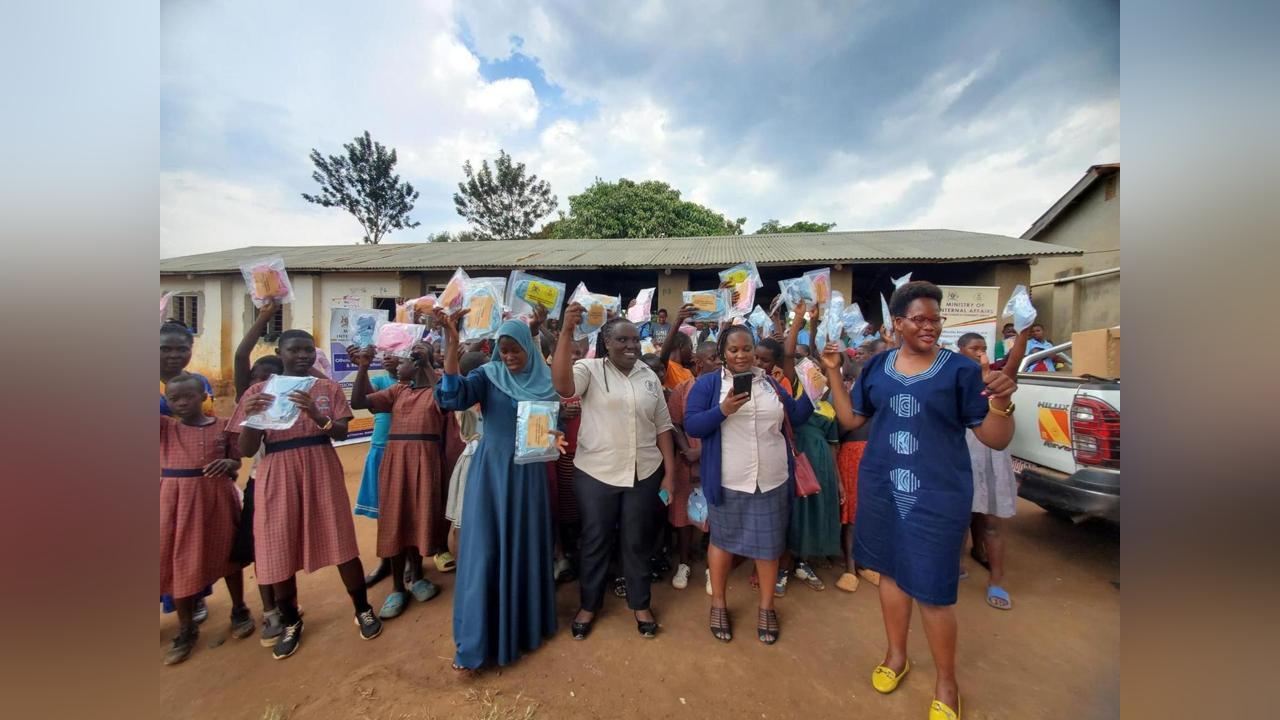Africa-Press – Uganda. Mityana Chief Magistrate’s Court has pioneered an innovative approach that blends justice with community empowerment.
Instead of simply serving punishment, offenders placed on community service are trained to sew reusable sanitary pads, creating a rare link between rehabilitation and social impact.
Apophia Turyahabwe, the Senior Community Service Officer for the Central Region under the Ministry of Internal Affairs, revealed that the initiative has so far produced more than 1,500 pads in just two financial years.
“This project does two things at once,” Turyahabwe said. “It helps offenders acquire practical skills that keep them productive and less likely to reoffend, and at the same time, it provides critical support to schoolgirls who would otherwise miss class or drop out because of menstrual health challenges.”
The pads are distributed free of charge, with priority given to government schools and health facilities. Last week, the court delivered a consignment to Buzibazi Church of Uganda Primary School in Mityana, where many girls had reportedly dropped out due to lack of access to sanitary products.
Chief Magistrate Aisha Nabukeera emphasized that the project not only supports education but also reduces congestion in prisons.
“Instead of sending petty offenders to prison, we place them on community service where they can contribute positively to society,” she said.
“In Mityana, we chose to channel that service into pad-making, which benefits not only the offenders but also our schoolgirls.”
Despite its success, the program has faced challenges. Many offenders begin without tailoring experience, which slows production.
“Most people we receive have never touched a sewing machine,” Turyahabwe explained.
“We have to start them off with peer trainers, and by the time their sentence ends, they may have learned only the basics. Some also struggle to continue the trade afterward because they cannot afford tailoring machines or materials.”
Prossy Mwanjuzi, the Deputy Resident District Commissioner of Mityana, praised the government for supporting the initiative.
“This is a timely intervention because many girls drop out of school simply because they lack sanitary pads,” she said.
“By providing these reusable pads through the court’s community service program, we are giving our children hope and ensuring they do not miss classes during their menstrual days.”
The initiative has been widely hailed as a model of restorative justice—turning punishment into rehabilitation while delivering meaningful community service.
Would you like me to also shorten this into a 200–250 word news brief version for quick publication, or keep it as a full-length feature piece?
For More News And Analysis About Uganda Follow Africa-Press






